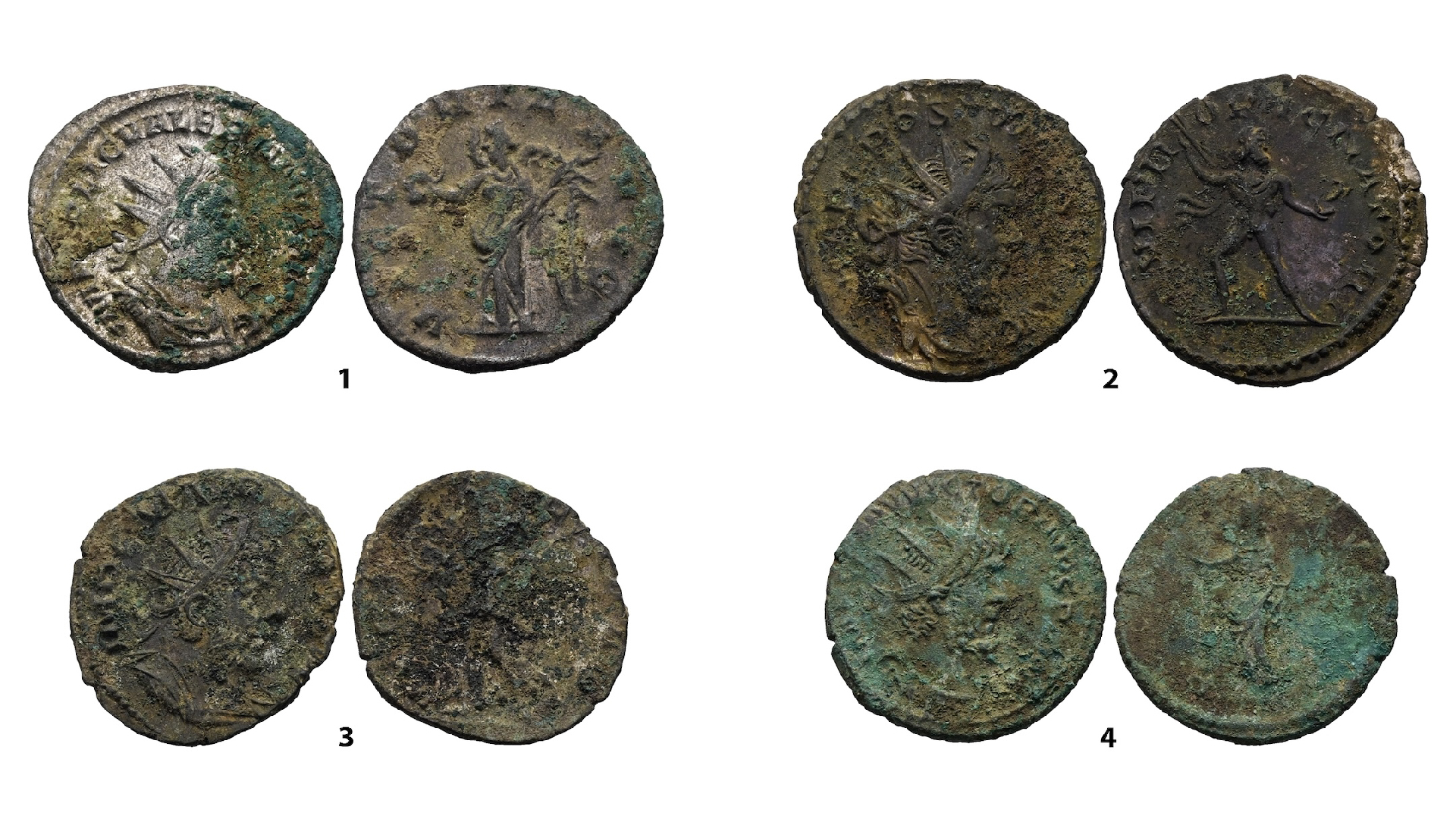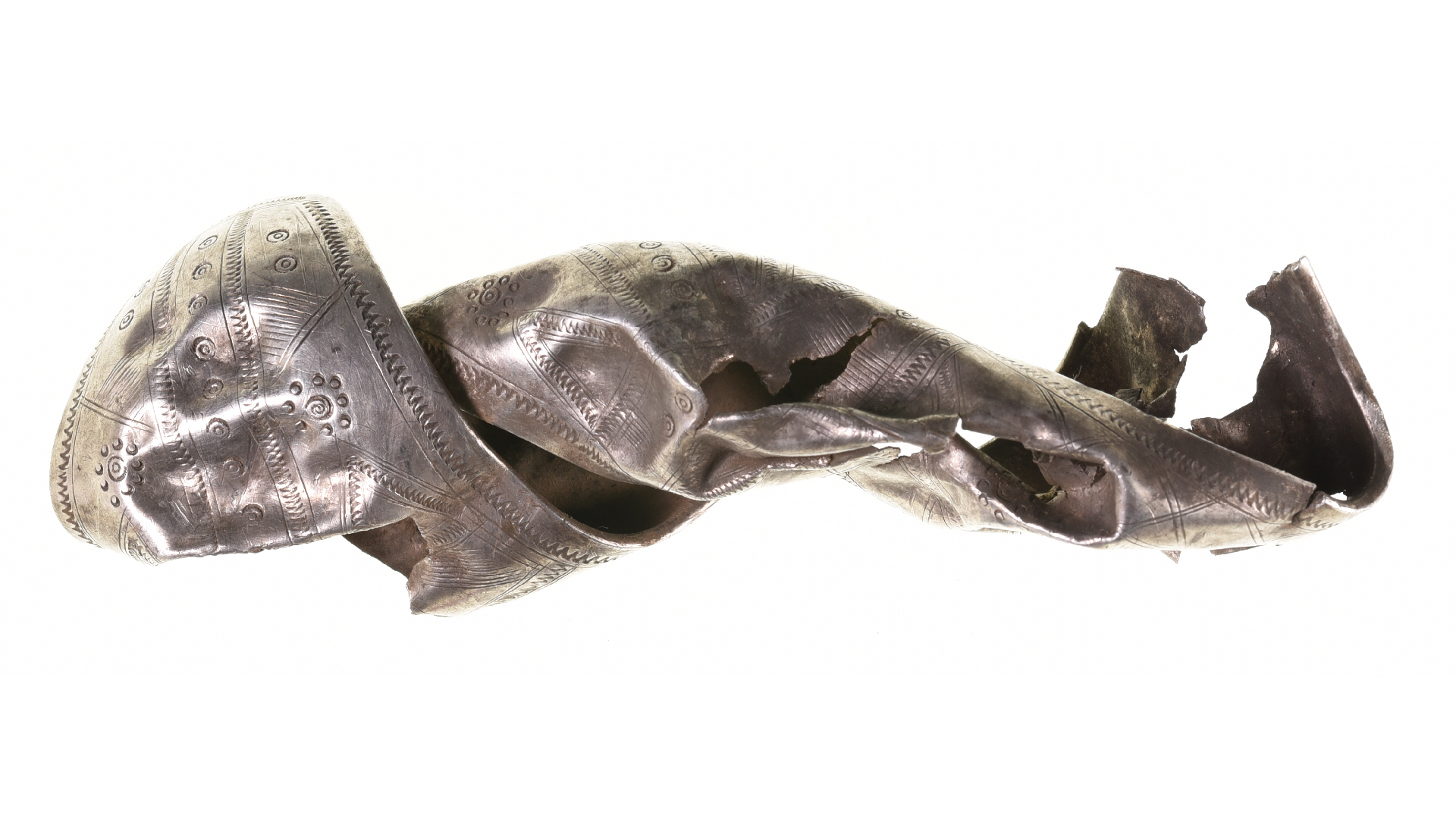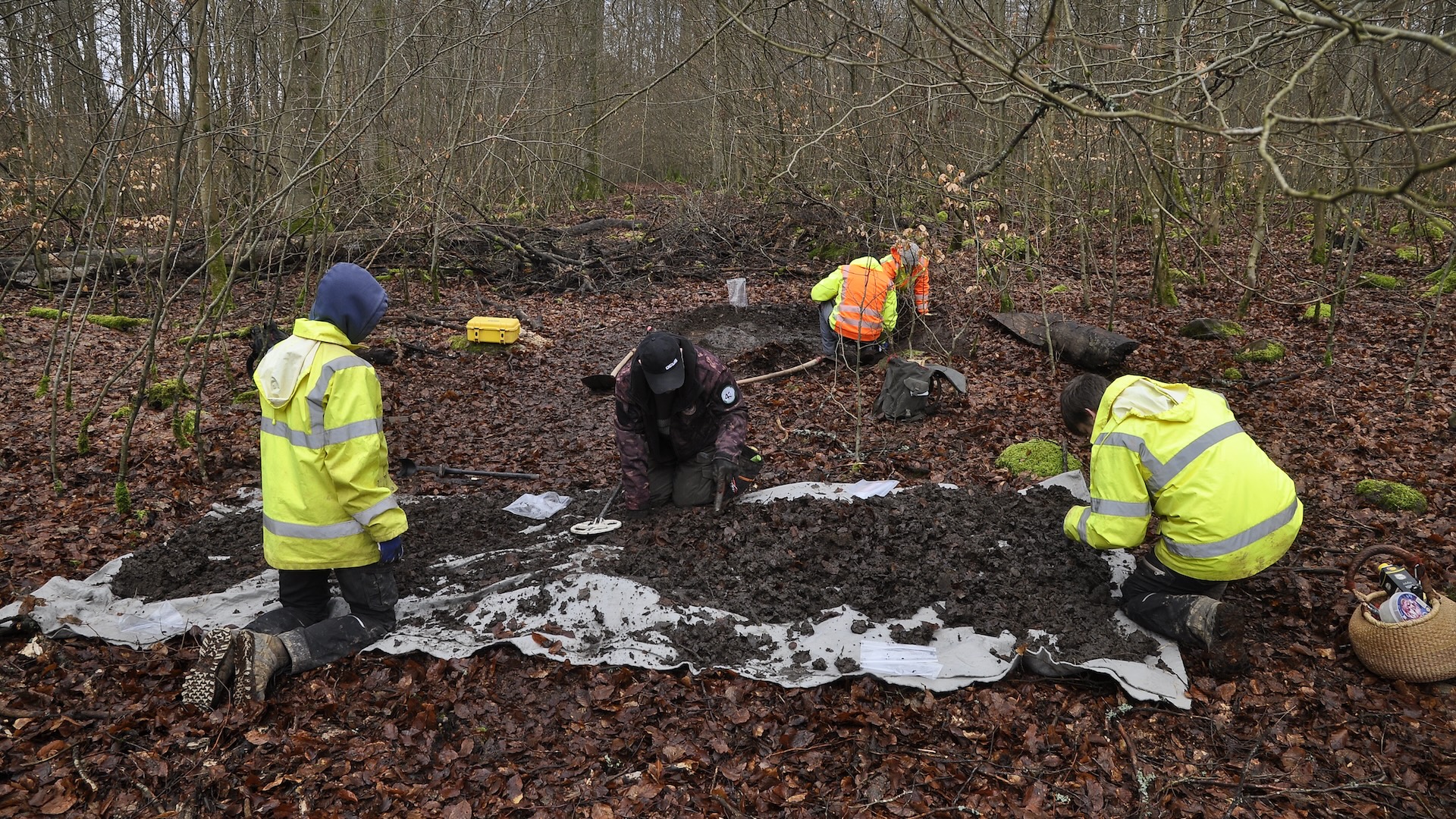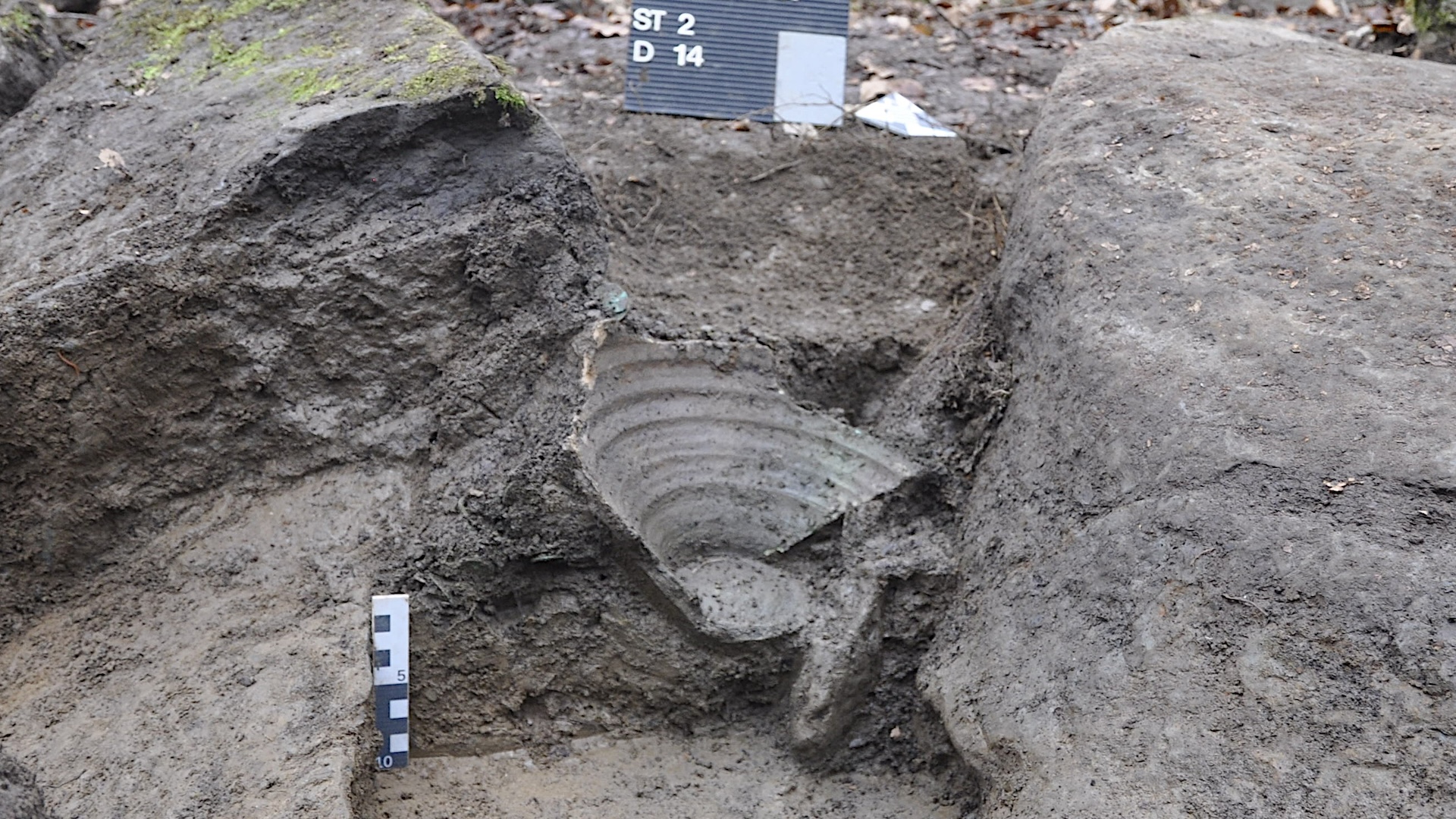
A metal detectorist in Germany has discovered a rare hoard of almost 3,000 Roman-era coins outside of the Roman Empire's ancient borders and far from any known Germanic tribe settlements of the time. Experts don't know how or why the huge hoard ended up there.
The licensed metal detectorist immediately reported the findings to government archaeologists in Koblenz, a city on the Rhine River. The subsequent excavation uncovered about 2,940 coins as well as more than 200 thin silver fragments decorated with geometric designs buried in a now-broken ceramic pot hidden between two rocks.
"Most of the coins are so called Antoniniani, which were the official silver coin in the Roman Empire in the 3rd century [A.D.] but mostly consisted of bronze with a thin silver overlay," Timo Lang, head of the Koblenz branch office of the State Archaeology in Rhineland-Palatinate who oversaw the excavation, told Live Science in an email.
Because of the coins' poor state of preservation, only 100 have been identified so far, most of which depict the portrait of either a Roman or Gallic emperor on one side and other images on the back, such as the deities Hercules and Mars. The oldest coins depict Roman emperor Gordianus III (ruled A.D. 238 to 244), and the youngest depict Gallic emperor Victorinus (ruled circa A.D. 269 to 271). The archaeologists are unsure what the silver fragments used to be, but the ceramic pot's shape is consistent with third century A.D. Roman ceramic traditions.
Related story: Roman coin trove discovered on Mediterranean island may have been hidden during ancient pirate attack
The coins date to between A.D. 241 and 243 until A.D. 269 and 271, so the hoard was probably buried in the early 270s, Lang said.

The discovery was made near the town of Herschbach in the Westerwald mountain range, 11 miles (18 kilometers) past the Upper Germanic Limes, the defensive line that marked the Roman Empire's frontier with the Germanic peoples. While third-century Roman coins are frequently discovered within the empire's borders, finding such a big hoard outside the empire's former lands is exceedingly rare.
"Usually coin hoards outside the Roman Empire consist of a few dozen or perhaps a few hundred coins," Lang explained. He added that he knew of only one hoard from outside the empire that had more coins from this period — a stash of coins found in Poland.
The archaeologists determined that some of the newfound coins were from Rome, but most were minted in Cologne, which at the time was part of the Gallic Empire — a region including modern-day France, Belgium, Spain and parts of Germany and Italy that broke away from the Roman Empire during a time of political instability from approximately A.D. 260 to 274, Lang explained. The region where the hoard was discovered, however, wasn't part of the Gallic Empire.


So how did the coins get into enemy territory? There are various possibilities. One of them is that the Gallic Empire tried bribing German elites either not to attack them, or to attack the Roman Empire. Why the coins were hidden in the Westerwald mountains, however, where there weren't any known Germanic settlements, remains a mystery.
Lang's team hopes to analyze the silver fragments with a computed tomography (CT) scanner to digitally reconstruct their original shape. The archaeologists also plan to partner with other researchers to identify the rest of the coins.







